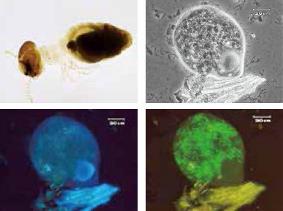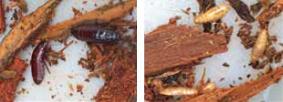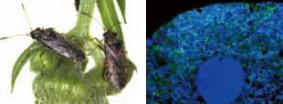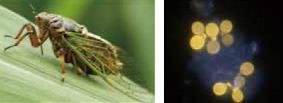Department of Biodiversity and Evolutional Biology




Functional Genomics Group
- Analysis of wood decomposition mechanisms by termites and their symbiotic microorganisms digest almost withered plants in subtropical and tropical areas. Effective decomposer systems constructed by both host and symbiont relationships are being analyzed from the viewpoints of molecular biology, biochemistry, morphology, and spaciotemporal metabolomics. The outcome would give a useful insight into a molecular basis of carbon recycle in the tropical ecosystem and is expected to be applied for bio-ethanol production as an important bio-resource.
- Evolutionary and genetic analyses of insect-endosymbiont mutualisms.
Many insects harbor obligate mutualistic endosymbionts. We are studying mechanisms and diversity of insect-symbiont interactions focusing on the symbionts of cockroaches, termites, stinkbugs, cicadas and fruit flies. In termites, the loss of intracellular symbioses and gain of gut symbioses can be considered as an evolutionary transition based on genetic and metabolic conflicts between two different symbiotic systems. Thus, we conduct comparative genomics among several strains of cockroach endosymbiont Blattabacterium cuenoti and its metabolic diversity of the endoymbiont and gut to elucidate their conflicts. We also study various singing cicada species for their microbial symbioses, having discovered repeated evolutionary transitions of fungal parasites into beneficial symbionts for compensating the loss of ancient bacterial symbiont lineage.

Gut of termite and their symbiotic protists
Green signals indicate methnogens

Left: Wood-feeding cockroach, Cryptocercus punctulatus
Right: Juveniles of C. punctulatus, which resemble termites

Left: Lygaeid seed bug, Nysius plebeius
Right: A bacteriocyte of N. plebeius, harboring numerous symbiont cells

Sugar cane cicada, Mogannia minutaand its fungal symbiont cells
Member
| Position | Name |
|---|---|
| Professor | Gaku TOKUDA |
| Assistant Prof. | Yu MATSUURA |
